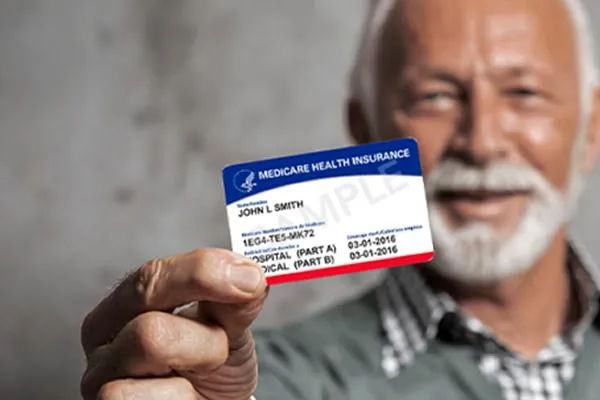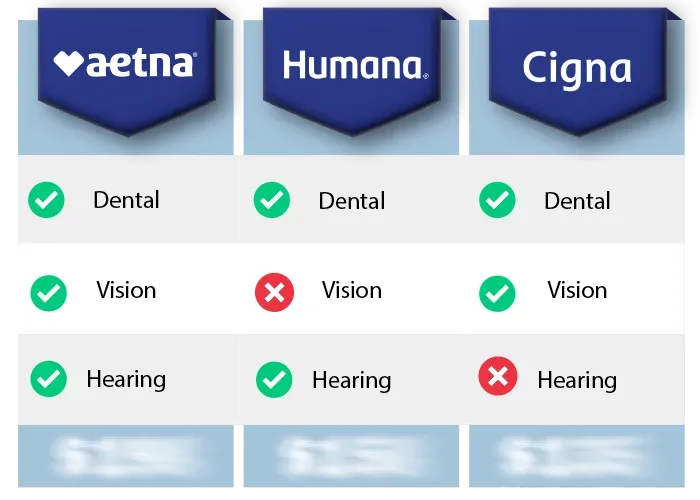
Medicare Coverage Hearing Aids: An Insight into Benefits and Limitations
Medicare Coverage Hearing Aids: An Insight into Benefits and Limitations
Medicare, the renowned health insurance program in the United States, caters primarily to individuals aged 65 and above. Like any other insurance program, understanding its range of coverages is essential. One such area that draws attention and questions is the coverage for hearing aids. How well does Medicare step up to the challenge, and what do beneficiaries need to know?
1. The Basics of Medicare
Before diving into hearing aid coverage, it's essential to understand the basics of Medicare. Medicare has various parts, and each serves a distinct purpose:
Part A: Hospital Insurance – Covers inpatient care, hospice, and some home health care.
Part B: Medical Insurance – Focuses on outpatient care, doctor's visits, and preventive services.
Part C: Medicare Advantage Plans – An alternative to the original Medicare, combining Part A and Part B, often with Part D (prescription drug coverage). Some plans might offer extra benefits.
Part D: Prescription Drug Coverage.
2. Hearing Aid Coverage Under Original Medicare
Original Medicare, comprised of Part A and Part B, unfortunately, does not cover hearing aids. Nor does it cover exams for fitting them. This means beneficiaries must pay 100% for hearing aids under this scheme.
3. Exploring Medicare Advantage (Part C) Possibilities
While Original Medicare might not cover hearing aids, there's a ray of hope with Medicare Advantage Plans. Some of these plans might offer additional benefits not included in Original Medicare, such as vision, dental, and even hearing services. This includes coverage for hearing exams and, in some cases, hearing aids themselves. It's crucial to understand, however, that the specifics of what's covered can vary widely from one plan to another.
4. Possible Workarounds and Alternatives
Beneficiaries shouldn't lose hope. There are potential avenues to explore:
State-based programs: Some states offer assistance programs specifically designed to help with the costs of hearing aids.
Medicaid: Depending on the state, Medicaid might cover the costs of hearing aids for qualifying individuals.
Non-profits: Organizations like the Lions Club or the Starkey Hearing Foundation might offer assistance or discounted hearing aids.
5. The Importance of Routine Hearing Exams
Routine hearing exams are essential for early detection and treatment of hearing loss. While Original Medicare might not cover hearing aids, it does sometimes cover diagnostic hearing and balance exams if ordered by a physician for a specific medical condition.
6. The Future of Hearing Aid Coverage
As the prevalence of hearing loss rises with the aging population, there's a growing push to revisit the restrictions on hearing aid coverage. Some legislative proposals aim to expand Medicare's hearing aid coverage. Beneficiaries and advocates should stay informed and participate in public discussions on the topic.
7. Making an Informed Decision
It's crucial for beneficiaries to be proactive. Here are some steps to consider:
Research: Dive deep into the specifics of your Medicare plan or any other insurance you might have. If you're considering switching to a Medicare Advantage plan, ensure to understand its hearing aid benefits.
Consult: Talk to your audiologist or hearing health provider. They might be aware of discounts, programs, or other avenues to make hearing aids more affordable.
Stay Updated: As mentioned earlier, the landscape of Medicare coverage, especially concerning hearing aids, is continually evolving. It pays to be informed.
Conclusion
While the current state of Medicare's coverage for hearing aids might seem limiting, there are potential workarounds and hope for the future. With advocacy, informed choices, and an understanding of the available resources, beneficiaries can navigate the path to improved hearing health.

Copyright © 2025 Senior Benefits Guide All Rights Reserved.
204 Church St Suite 1A, Boonton NJ 07005
Disclaimer: This website is not affiliated with the Medicare/Medicaid program or any other government entity. The information provided on this website is for informational purposes only. It is not intended to be, nor does it constitute any kind of financial advice. Please seek advice from a qualified professional prior to making any financial decisions based on the information provided. This website acts as an independent digital media & advertising publisher. This webpage is formatted as an advertorial. An advertorial is an advertisement that is written in an editorial news format. PLEASE BE AWARE THAT THIS IS AN ADVERTISEMENT AND NOT AN ACTUAL NEWS ARTICLE, BLOG, OR CONSUMER PROTECTION UPDATE. This website MAY RECEIVE PAID COMPENSATION FOR CLICKS OR SALES PRODUCED FROM THE CONTENT FOUND ON THIS WEBPAGE. This compensation may affect which companies are displayed, the placement of advertisements, and their order of appearance. Any information, discounts, or price quotations listed may not be applicable in your location or if certain requirements are not met. Additionally, our advertisers may have additional qualification requirements.
Our goal is to provide exceptional service. One of our agents may reach out to you to discuss your order, ask for feedback, and/or see if you need any assistance with your products, services, or plans, at the phone number you provided regardless of your do-not-call list status. You may opt-out of further contact at any time by simply telling our customer service team that you would no longer like to be contacted. In the event that our team is unable to reach you by phone, they may send you a text message letting you know that we called. Both our text messages and phone calls may be sent or connected utilizing automated software. Carrier charges may apply. You may opt-out of any future contact via text message by replying anytime with "STOP".
Copyright © 2025 All Rights Reserved.
Find Medicare Advantage Plans in 3 Easy Steps

